01 - Comparative Study of India and Pakistan as Federations BRI ...
http://dx.doi.org/10.31703/girr.2018(I-I).0110.31703/girr.2018(I-I).01 Published : Dec 2018
-
This article conducts a comparative study of the federal structures in India and Pakistan. The study aims to understand the similarities and differences between the two federations and their impact on governance, democracy, and economic development. The article employs both qualitative and quantitative research methods to analyze the federal systems of the two countries. The analysis includes exam... Details
-
Federalism, Provincial autonomy, democracy, Constitutional comparison.
-
(1) Muhammad Bilal
Lecturer, Department Political Science, Govt. Associate College, Chak Jhumra, Faisalabad, Punjab, Pakistan.
(2) Sajida Begum
Assistant Professor, Department of Political Science, Minhaj University, Lahore, Punjab, Pakistan.
(3) Amina Farooq
P.hD Scholar, University of Agriculture, Faisalabad
02 - India's Indigenization and Modernization of Defence and Military Technology: Str...
http://dx.doi.org/10.31703/girr.2018(I-I).0210.31703/girr.2018(I-I).02 Published : Dec 2018
-
India is arming and modernizing its military with its land forces receiving equipment in an unprecedented manner while its navy is growingly becoming a blue water navy capable of projecting power way beyond its shores and is rapidly arming its air force to become a strategic force capable of playing an independent role. The international environment is favourable for India, which is further adding... Details
-
Indigenization, Military Technology, Defence Equipment, Pakistan, India
-
(1) Muhammad Ali Baig
Writer at Daily Times, Pakistan Observer and Pakistan Today and currently a Scholar at the National Defence University in Islamabad, Pakistan.
(2) Hamid Iqbal
Lecturer, Department of International Relations, National Defence University, Islamabad, Pakistan.
(3) Syed Sabir Muhammad
M. Phil, Department of International Relations, National Defence University, Islamabad, Pakistan.
03 - Future of GCC in the Aftermath of Qatar Blockade...
http://dx.doi.org/10.31703/girr.2018(I-I).0310.31703/girr.2018(I-I).03 Published : Dec 2018
-
The de-facto effectiveness of GCC has been reinvigorated after the Qatar diplomatic crisis for both Middle East in and the Gulf countries. The question however remains quite pertinent about the future of this organization for cooperation of the signatory actors in economic, security and socio-cultural domains particularly after the Washington's unsatisfactory retort to the KSA in response to alleg... Details
-
GCC, Qatar Blockade. Gulf crisis, Middle East, Geo-Politics of GCC. Economic Bubble of GCC
-
(1) Usama Rauf
M. Phil Scholar, Department of International Relations, National Defence University, Islamabad, Pakistan.
(2) Syed Umair Jalal
M.Phil. Scholar, Department of Political Science, University of Peshawar, KP, Pakistan.
04 - Status of Minorities: A Comparative Study of India and Pakistan...
http://dx.doi.org/10.31703/girr.2018(I-I).0410.31703/girr.2018(I-I).04 Published : Dec 2018
-
This research article titled "Status of Minorities: A Comparative Study of India and Pakistan", is an attempt to understand the status of minorities e.g., economic, political, social and constitutional rights that has been underestimated for decades. Comparative analysis research method has been used to comprehend the rights of minorities and their violations by India and Pakistan. To understand t... Details
-
Minority, India, Pakistan, Legislation, Violence
-
(1) Athar Ali
PhD Scholar, Department of International Relations, National Defence University Islamabad, Pakistan.
(2) Muhammad Imran Ashraf
Assistant Professor, Department of International Relations, National Defence University Islamabad, Pakistan.
05 - Leadership Role of Hassan Rouhani and Nuclear Deal of Iran...
http://dx.doi.org/10.31703/girr.2018(I-I).0510.31703/girr.2018(I-I).05 Published : Dec 2018
-
Hassan Rouhani had been serving as secretary to Supreme National Security Council for 16 years. Hassan Rouhani was the person who was tasked to lead the team of technically, politically and legally expert's negotiators on nuclear program of Iran to start talks with the western powers to decreased the tension between IAEA body and foreign ministry of Iran on reports published by the IAEA and adopti... Details
-
Hassan Rouhani, Nuclear Deal, Iran
-
(1) Sajida Begum
Assistant Professor, Department of Political Science, Minhaj University Lahore, Lahore, Punjab, Pakistan.
(2) Noor Fatima
Chairperson, Department of Politics and IR, International Islamic University, Islamabad, Pakistan.

 Volume VII, Issue III (Summer 2024)
Volume VII, Issue III (Summer 2024) 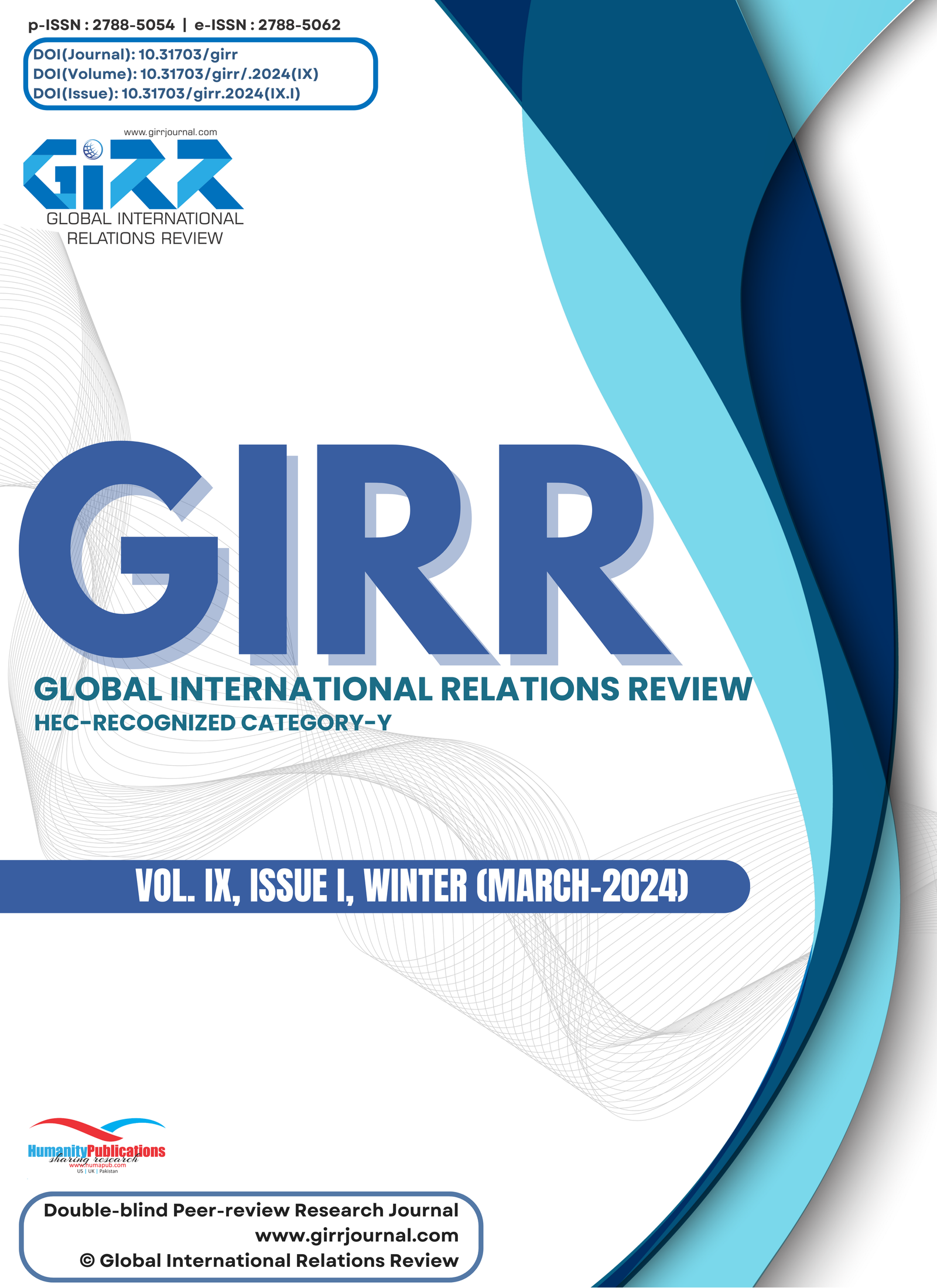 Volume VII, Issue I (Winter 2024)
Volume VII, Issue I (Winter 2024) 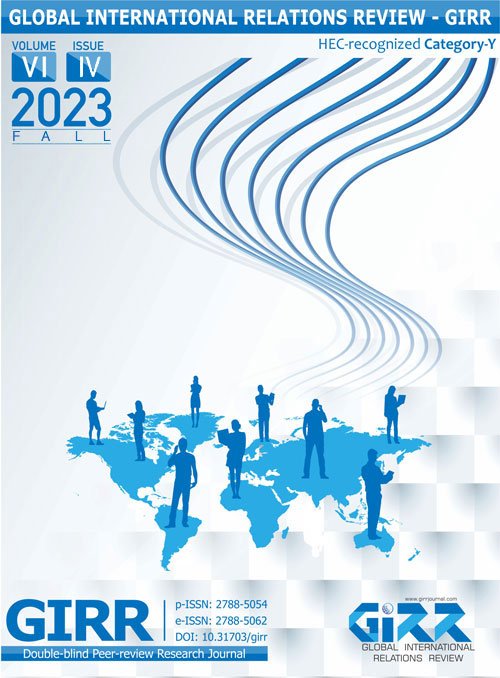 Volume VI, Issue IV (Fall 2023)
Volume VI, Issue IV (Fall 2023) 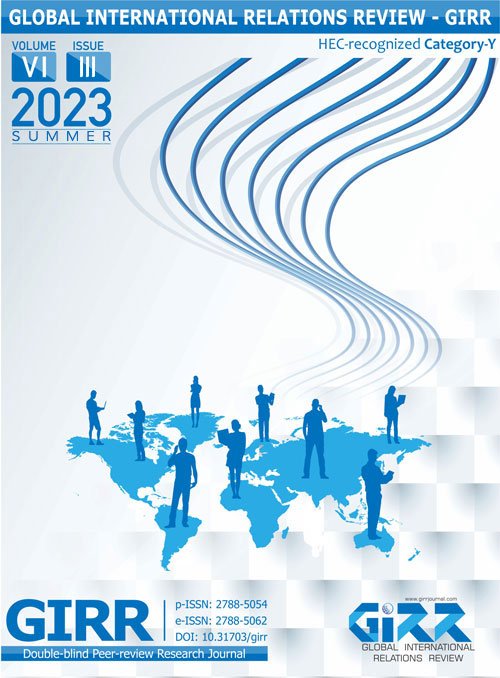 Volume VI, Issue III (Summer 2023)
Volume VI, Issue III (Summer 2023) 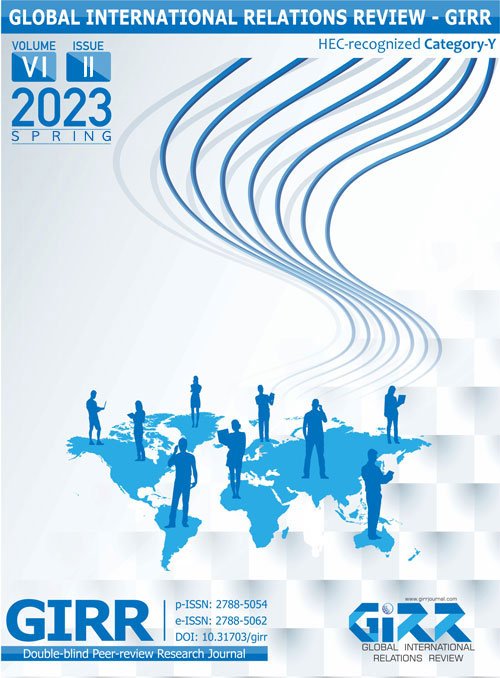 Volume VI, Issue II (Spring 2023)
Volume VI, Issue II (Spring 2023)  Volume VI, Issue I (Winter 2023)
Volume VI, Issue I (Winter 2023)  Volume V, Issue IV (Fall 2022)
Volume V, Issue IV (Fall 2022) 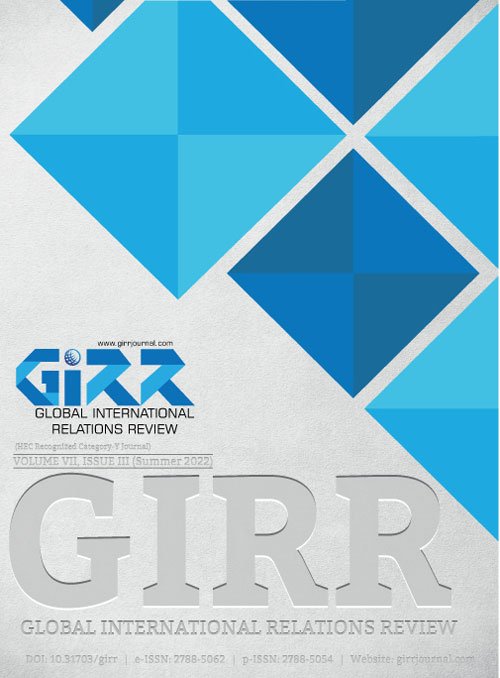 Volume V, Issue III (Summer 2022)
Volume V, Issue III (Summer 2022)  Volume V, Issue II (Spring 2022)
Volume V, Issue II (Spring 2022)  Volume V, Issue I (Winter 2022)
Volume V, Issue I (Winter 2022) 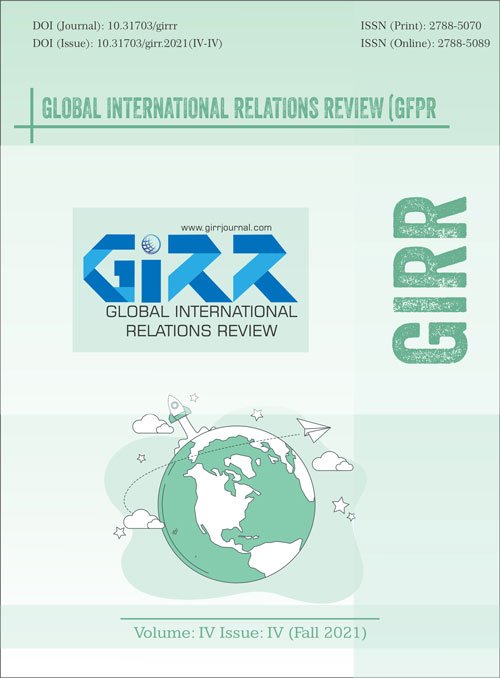 Volume IV, Issue IV (Fall 2021)
Volume IV, Issue IV (Fall 2021) 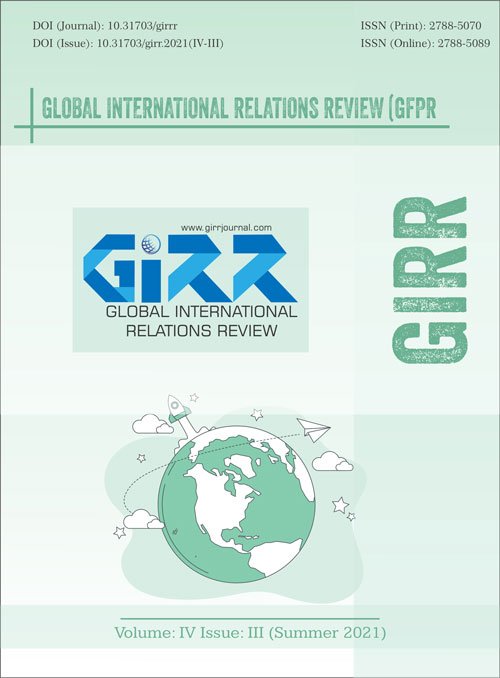 Volume IV, Issue III (Summer 2021)
Volume IV, Issue III (Summer 2021)  Volume IV, Issue II (Spring 2021)
Volume IV, Issue II (Spring 2021) 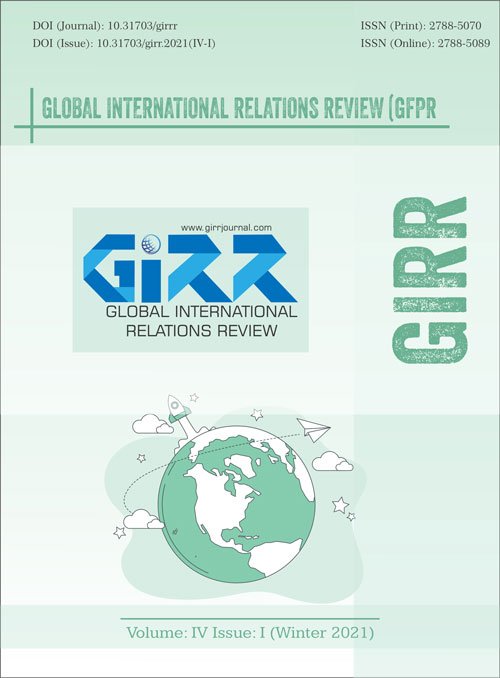 Volume IV, Issue I (Winter 2021)
Volume IV, Issue I (Winter 2021)  Volume III, Issue I (Fall 2020)
Volume III, Issue I (Fall 2020)  Volume II, Issue I (Fall 2019)
Volume II, Issue I (Fall 2019)  Volume I, Issue I (Fall 2018)
Volume I, Issue I (Fall 2018)